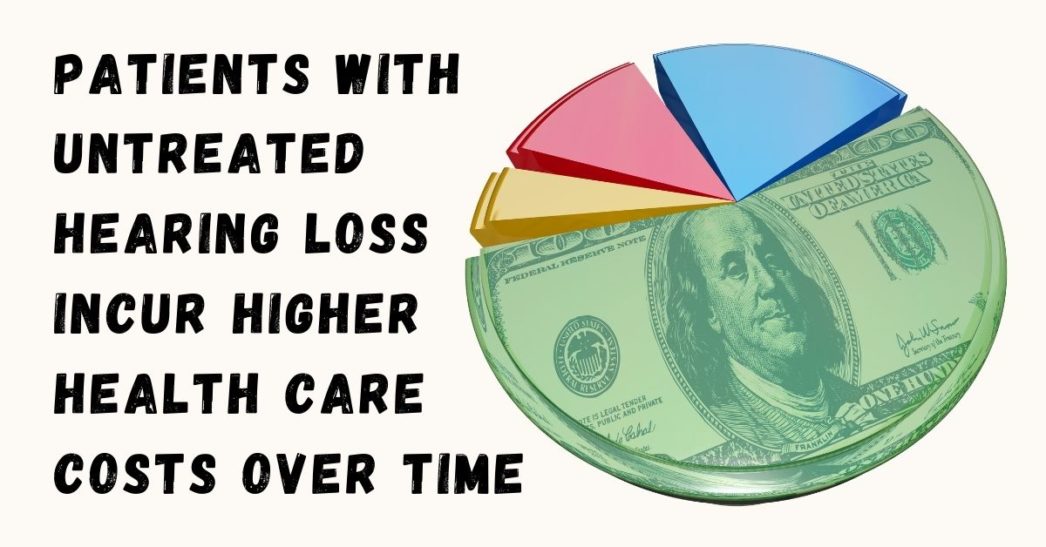Over 40 million people in the U.S. live with some degree of hearing loss. One of the most common medical conditions, hearing loss impacts 1 in 8 people. Additionally, the World Health Organization estimates that 1.1 billion teens and young adults globally are at increased risk of impaired hearing. Though these statistics highlight the pervasiveness of hearing loss, it still remains an undertreated and underdiagnosed health condition.
There are several reasons that help explain this including:
- Hearing loss typically happens gradually so people may be unaware that it is happening. Or they may think that it simply isn’t that bad or that urgent of an issue.
- There are numerous misconceptions about hearing loss including that it is not a serious health concern. But it actually has multifaceted effects that impact overall social life, job performance, and relationships.
- People may think that they can alleviate hearing issues by speaking loudly. This however, is not an effective strategy.
Not addressing hearing loss not only worsens the impairment, but the latest research also shows that it contributes to higher health care costs over time.
Study
In a significant study published in 2018, findings revealed that people with hearing loss incurred up to 46% more in health care costs over a decade compared to people without hearing loss. Conducted by researchers at Johns Hopkins University, analyzed health care claims made from 1999 to 2016 for more than 77,000 patients who most likely were experiencing untreated hearing loss. Examining inpatient hospitalizations, emergency department visits, readmissions etc.; researchers assessed health care costs at 2, 5, and 10-year points.
The study showed that at the 10-year mark, patients with hearing loss:
- Experienced about 50% more hospital stays
- 44% higher risk for hospital readmission within 30 days
- 17% more likely to have an emergency department visit
- Had 52 more outpatient visits than people without hearing loss
This accumulation of costs associated with this increased health care generated:
- 26% more in total health care costs within two years
- Increased to 46% by 10 years
- Amounting to $22,434 per person
Though the study did not explore why or how untreated hearing loss increases health care costs, researchers suggest the following:
- Hearing loss has long been associated with contributing to the development of other medical conditions including cognitive decline. Specifically increasing the risk of dementia.
- Hearing loss also increases the likelihood of experiencing accidental injuries. People with hearing loss experience more physical injuries (for example falling) than people without the condition.
- Common effects of hearing loss include social withdrawal and isolation. This impacts mental health contributing to depression and anxiety.
The statistics produced by one of the largest studies to investigate the link between untreated hearing loss and increased health care costs, underscores the importance of being proactive about hearing health.
Symptoms
It is critical to be aware of the symptoms of hearing loss so you can take immediate action. Symptoms can be experienced mildly to severely and can include the following:
- Tinnitus which is a buzzing or ringing noise in one or both ears
- Increasing the volume on your electronic devices (TV, speaker, phone)
- Asking others to repeat themselves, speak loudly and/or slowly
- Sounds are muffled or slurred
- Difficulty following conversation and identifying words, especially in environments with background noise
- Being able to hear more clearly in one ear over the other
These symptoms strain communication and make engaging in conversations challenging. This can lead to social withdrawal, impact job performance, and create distance in relationships. If you recognize any of these symptoms, it is critical to seek treatment.
Treating Hearing Loss
Addressing hearing loss is relatively simple. The first step is to schedule an appointment to have your hearing assessed. Conducted by one of our hearing healthcare specialists, hearing tests are noninvasive and measure your hearing ability in both ears. This identifies any impairment, the degree, and specific type of hearing loss you may be experiencing. Fortunately, there are several effective ways to treat hearing loss. The most common treatment is hearing aids which are electronic devices that help process sound, increasing one’s ability to hear.


